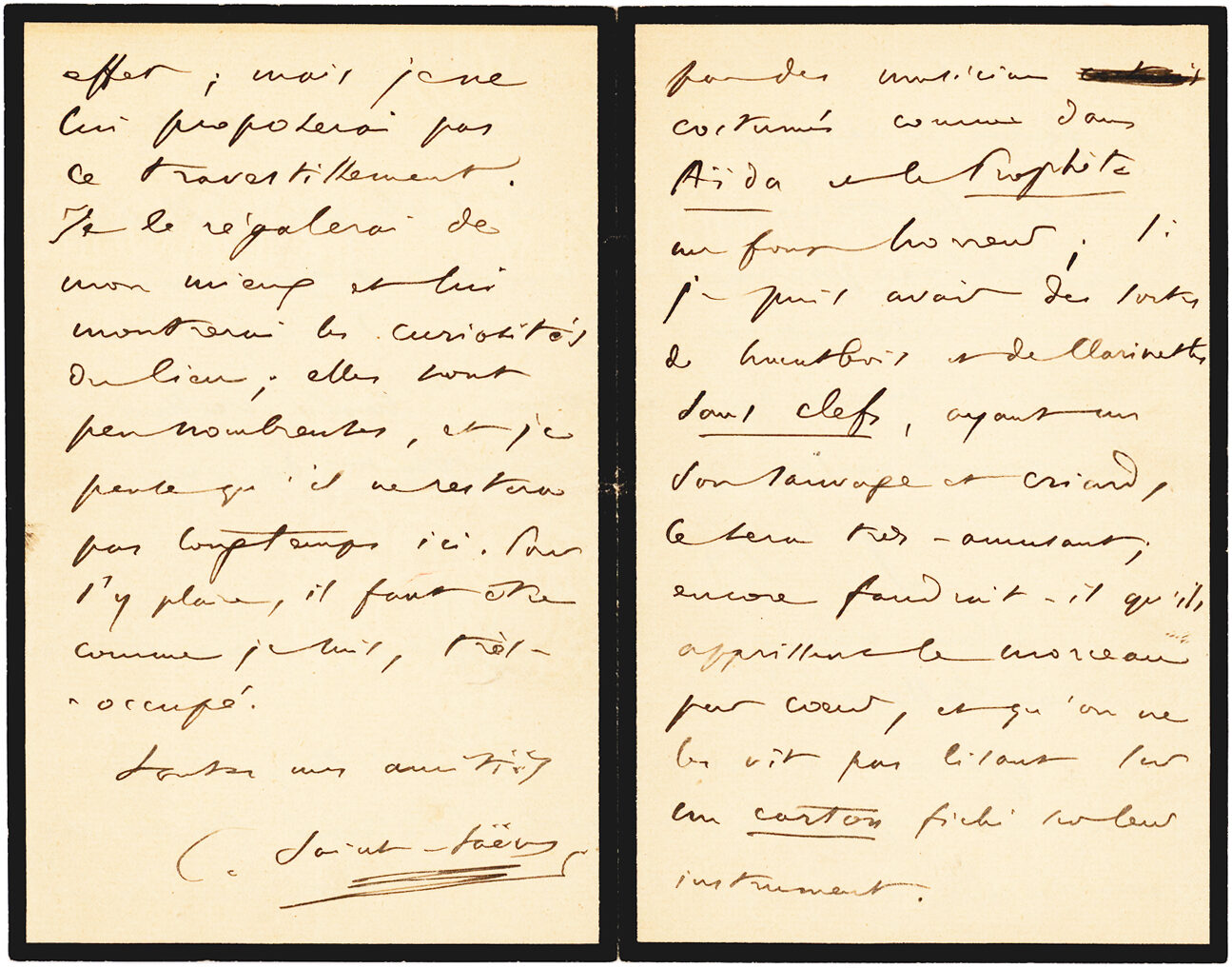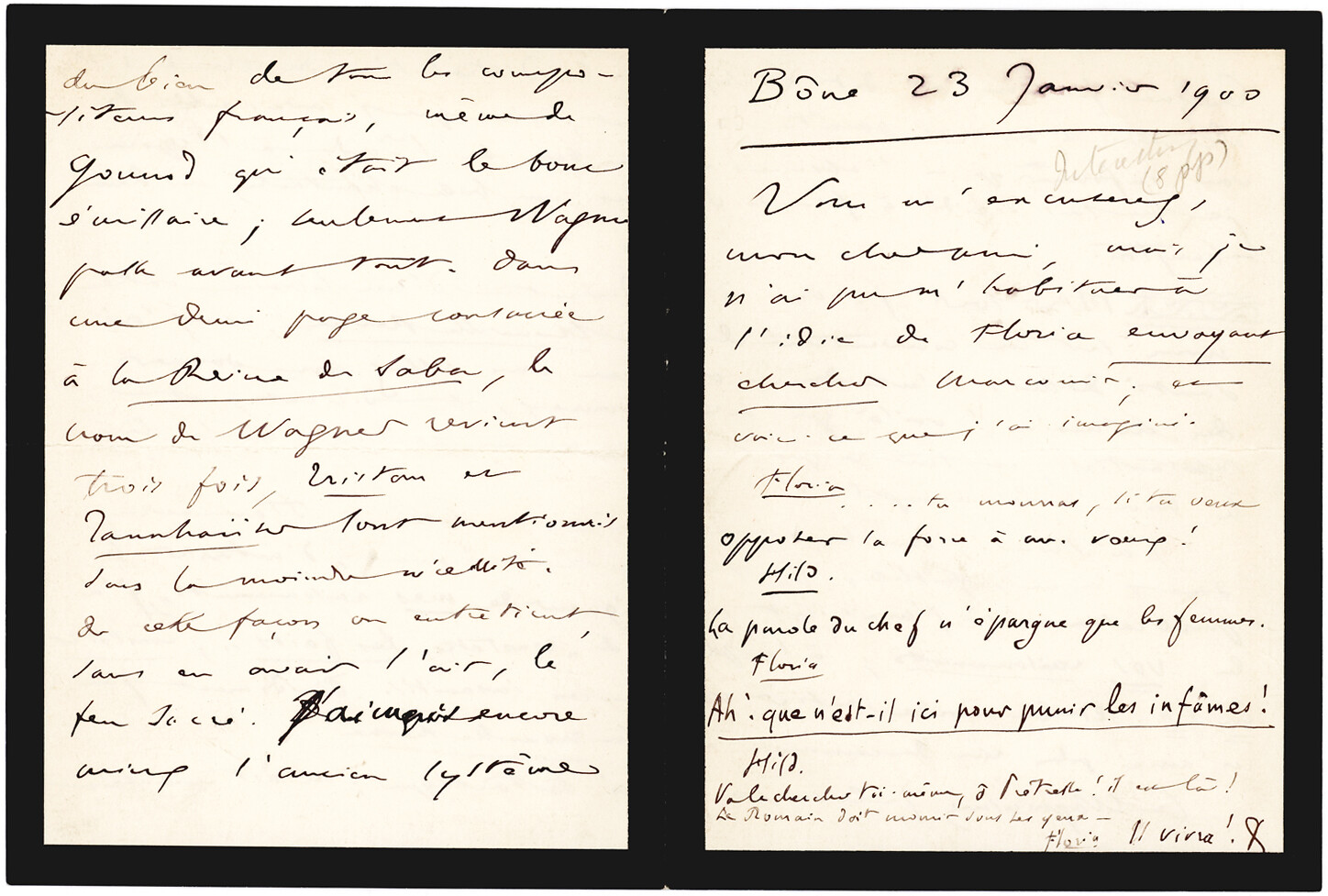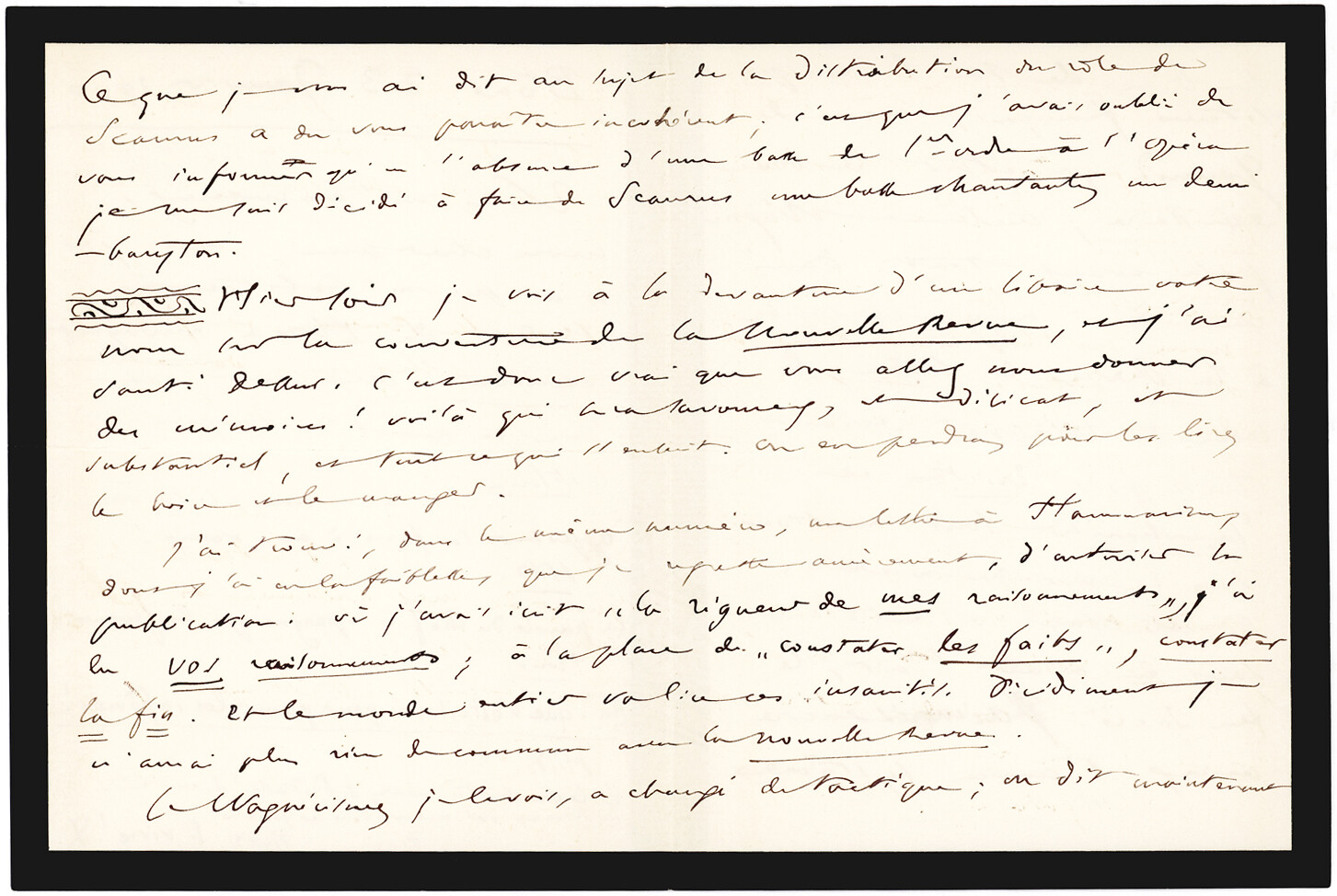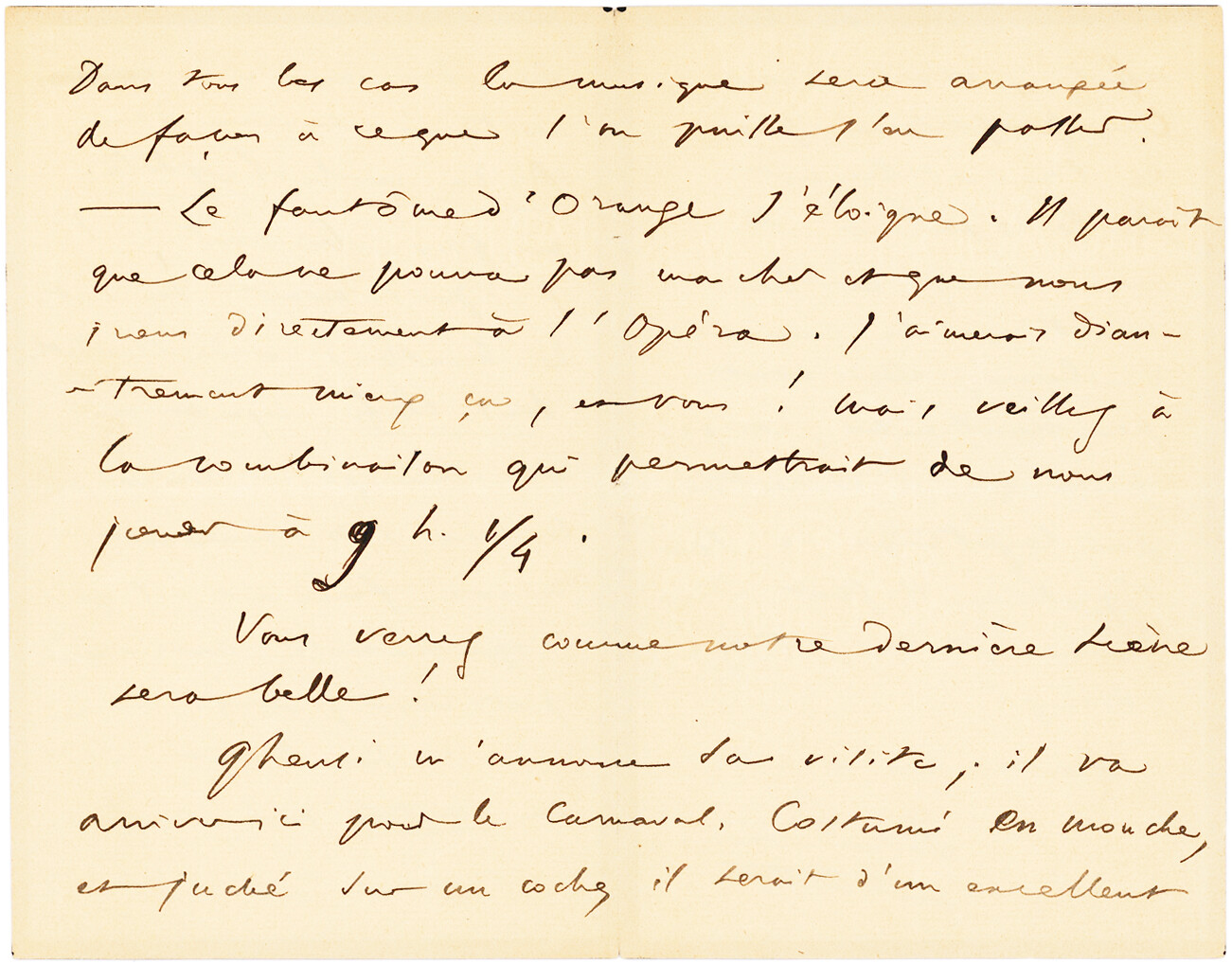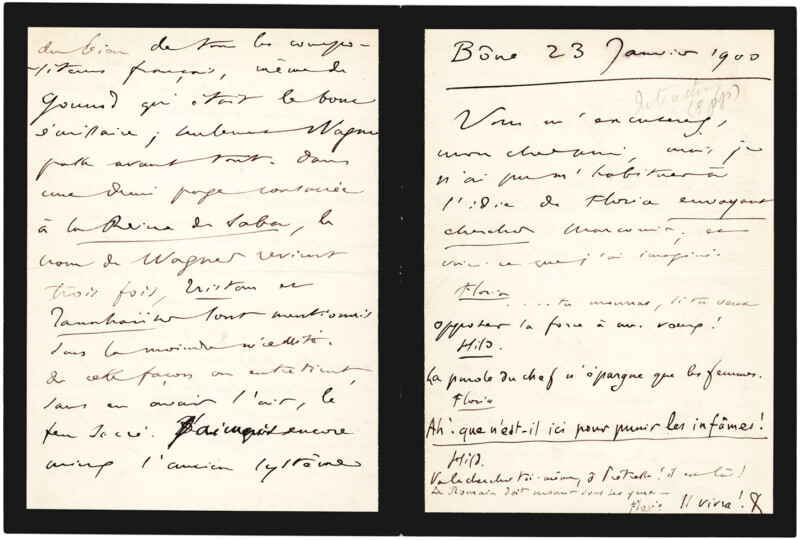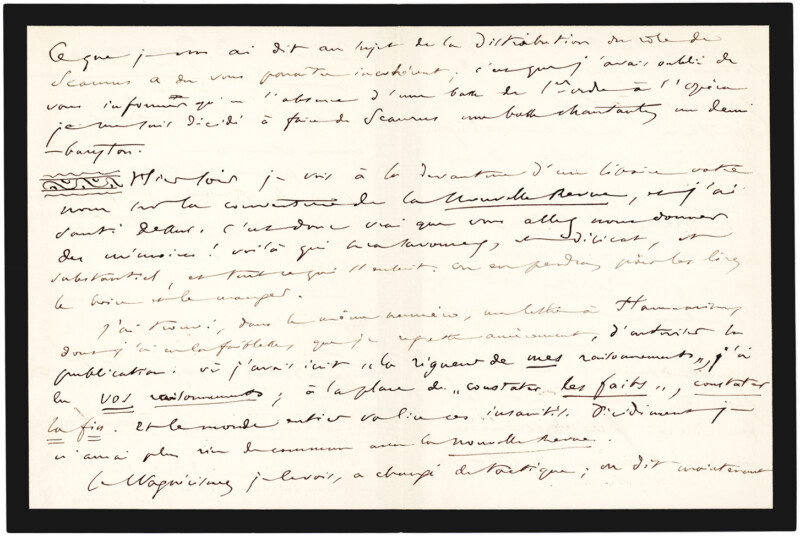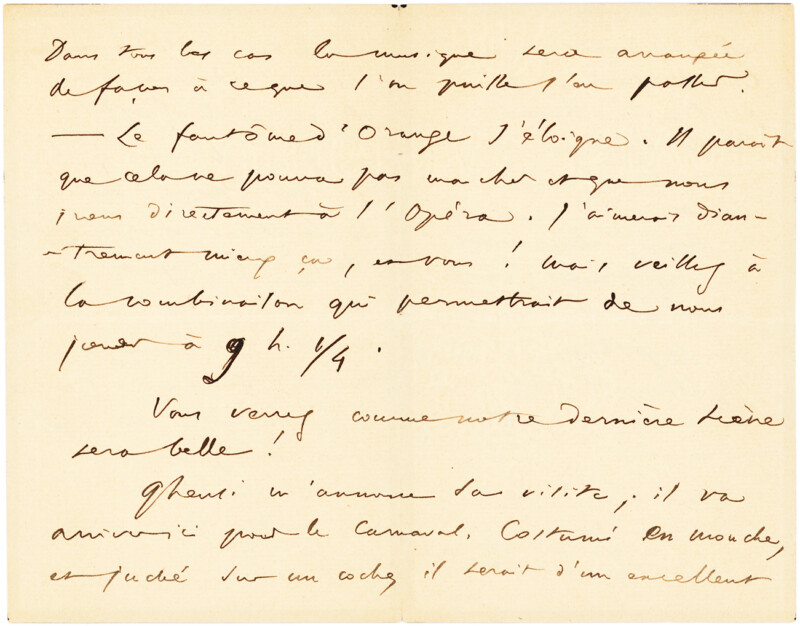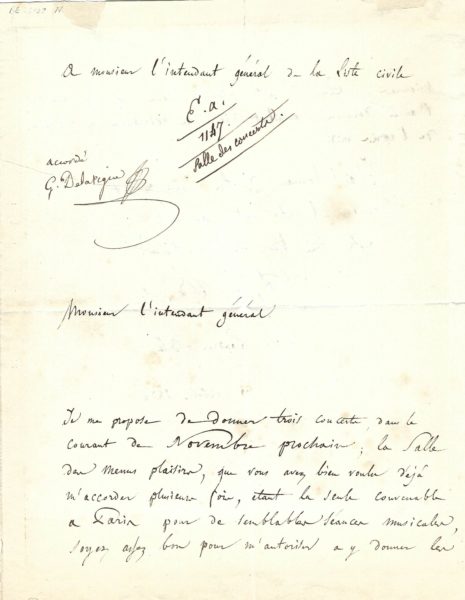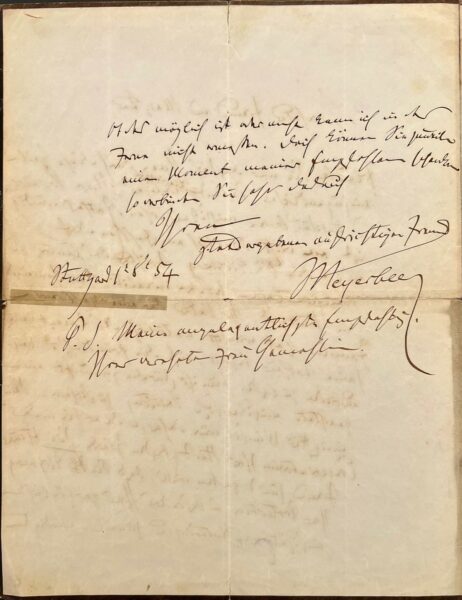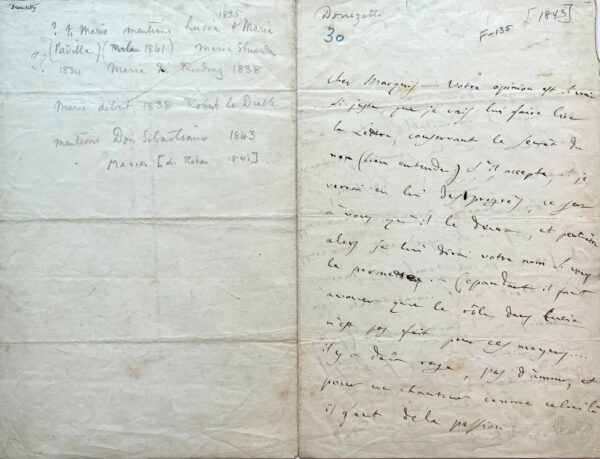What I told you about the distribution of the roles in Icarus must have seemed incoherent to you, but that is because I had forgotten to mention that in the absence of a first-class bass at the Opera I have decided to make Icarus a bass singing as a half-baritone.
[A small ornamental drawing] Last night I saw your name on the cover of the Nouvelle Revue in the window of a bookstore, and I grabbed it. So, it is true that you are going to give us some memories! Here is what is tasty and delicate and substantial and all that follows. The reader will forget to eat and drink over them.
I found in the same issue a letter to Harmonicus [?], to whom I had the weakness – that I bitterly regret – of authorizing the publication. If I had written ‘the severity of my reasoning,’ I read your reasoning; instead of ‘noticing the facts’, noticing the end, and the whole world is going to read this nonsense. I shall definitely never have anything to do with the Nouvelle Revue again.
The Wagner cult, I see, has changed tactics; good things are now being said of all French composers, even Gounod, who used to be the scape-goat; only Wagner tops them all. In a half page devoted to the Queen of Sheba, Wagner’s name comes up three times, Tristan and Tannhäuser are mentioned without the least necessity. Thus, without seeming to, they maintain the sacred fire. I liked the old systems better with musicians in costumes as in Aida and the Prophet – a flop; if I can get some kind of oboes and clarinets without keys, of a wild and shrill sound, that will be very entertaining; also they must learn the piece by heart, and they should not be seen reading from a cardboard attached to their instrument. In any event, the music will be arranged so that one can do without it.
The phantom of Orange withdraws. It seems that that will not work as we do not have the instruments at the Opera. By Jove, I would like that much better, and you! But watch for the combination which would allow us to play at 9:15 o’clock.
You will see how lovely our last scene will be!
Gheusi announces his visit; he is coming here for the carnival, dressed up as a fly and perched on a pig. The effect would be excellent; but I will not suggest this disguise to him. I shall treat him as best I can and show him all the sights of the place; they are few, and I do not think he will stay here long. To like it here, one must be as I am, very busy…”
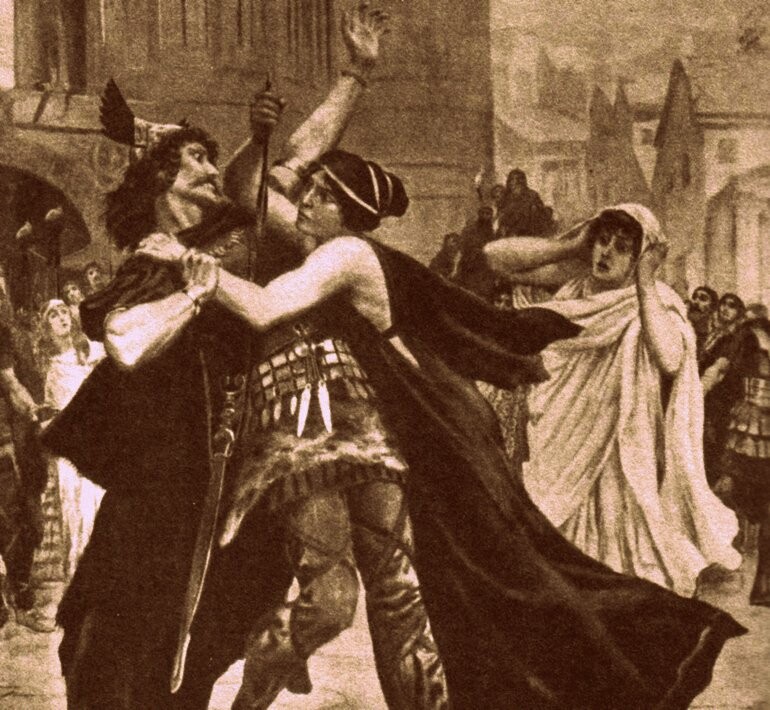
Scene from Les Barbares
While exciting Parisians with his spectacular organ performances, Saint-Saëns was also teaching and composing works like the Danse Macabre and his justifiably famous Symphony No. 3. His output exceeded 300 compositions and Saint-Saens was among the first composers to write a motion picture score – the Assassination of the Duke of Guise in 1908. He is, however, best remembered for his Carnaval des Animaux, which he did not want performed in his lifetime, but since his death has gained popularity especially with young audiences.
Our letter discusses his 1901 three-act lyric tragedy Les Barbares and its main characters, Floria, a vestal virgin (soprano), Marcomir, the leader of the Barbarians (tenor), and Hildibrath, the high priest (baritone). The composition had been commissioned by the French city of Orange, north of Avignon, where the drama was set. Intended to be staged in one of Orange’s ancient Roman amphitheaters, one of the best preserved in Europe, logistical problems, alluded to in our letter, forced the premier to be at the Paris Opéra’s Palais Garnier in October 1901. The libretto was written by Victorien Sardou and Pierre-Barthélemy Gheusi (1865-1943), the latter, towards whom Saint-Saëns expresses some animosity, had purchased the French periodical Nouvelle Revue in 1899.
Our letter’s reference to French composer Charles Gounod (1818-1893) is interesting as his popular operatic retelling of Goethe’s Faust was followed by Polyeucte, which like Les Barbares, dealt with the goddess Vesta and her worshippers. Richard Wagner (1813-1883), German composer of Tristan und Isolde and Tannhäuser, had criticized Gounod’s Faust, calling it a “feeble French travesty of a German monument,” and, as our letter indicates, Wagner’s acolytes were similarly unforgiving of Gounod, whose 1862 grand opera, The Queen of Sheba, our letter also mentions. Saint-Saëns’ comment that he likes “the old systems better with musicians in costumes” (mentioning Giuseppe Verdi’s Aida and Giacomo Meyerbeer’s The Prophet) is especially telling as, in his later years, Saint-Saëns became increasingly critical of modern music.
Our lengthy letter is written from Algeria where Saint-Saëns spent many winters and which inspired his Suite algérienne in C major, completed in 1880.
Written on two separate sheets of black-bordered mourning stationery. Folded with normal wear and in fine condition.

